
Dr Joe D Taylor: Molecular and Microbial ecology lab
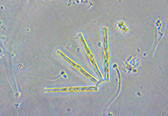
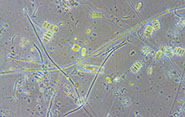
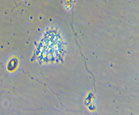
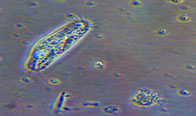
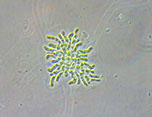
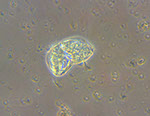
Joe Daniel Taylor BSc, PhD
ORCID: 0000-0003-0095-0869
Email:J.D.Taylor@salford.ac.uk,drjoetay@gmail.com
ResearchGate Score 27.02 h-index 11
GoogleScholar h-index 12 i10 13
RESEARCH FOCUS AND EXPERTISE
• The function and interactions of total microbial communities (Bacteria, Archaea, Protists, Fungi) within aquatic systems and terrestrial systems and their importance in biogeochemical cycles and food webs
• The role of fungi and fungi-like organisms as parasites and saprotrophs within aquatic ecosystems and their impact on biogeochemical cycles
• The role of protists in soil and agricultural systems and their impact on plant health and diversity
• eDNA techniques for monitoring of biodiversity and invasive species in aquatic systems
• Experience in linking microbial function to microbial diversity using a combined approach of modern and traditional microbiology techniques with computational analysis (PLFA-SIP, DNA/RNA SIP, high-throughput sequencing, rRNA amplicons, functional genes, RT-qPCR, genomics, metagenomics, transcriptomics)
• Expert taxonomic knowledge across the tree of life
GRANTS
• April 2018 £2059 University of Salford EERC pump priming grant “Detection of pathogenic protist reservoirs in aquaculture using an eDNA metabarcoding approach for prevention of infection.”
• July 2017 £ 2864 British Phycological Society “Probing diversity in complex freshwater microbial parasitic foodwebs”
• Feb 2017 £750 British Bryological Society “Microbial diversity associated with Bryophytes from the urban environment”
• March 2016 £3498 University of York Summer Studentship Bursary “Temporal dynamics of marine fungal communities”
• April 2016 £2200 British Lichen Society Summer studentship scheme “Hidden microbial diversity in lichen holobionts
PUBLICATIONS (Five most significant in last 5 years)
1. Cronin-O’Reilly S, Taylor J.D, Jermyn IA, Allcock L. Cunliffe, M., Johnson M. (2018) Limited congruence exhibited across microbial, meiofaunal and macrofaunal benthic assemblages in a heterogeneous coastal environment Scientific reports IF=4.122
2. Liu, X., Burslem, D.F., Taylor, J.D., Taylor, A.F., Khoo, E., Majalap‐Lee, N., Helgason, T. and Johnson, D., 2018. Partitioning of soil phosphorus among arbuscular and ectomycorrhizal trees in tropical and subtropical forests. Ecology letters. https://doi.org/10.1111/ele.12939 IF=10.689
3. Smale, D.A., Taylor, J.D., Coombs, S.H., Moore, G. and Cunliffe, M., 2017. Community responses to seawater warming are conserved across diverse biological groupings and taxonomic resolutions. Proc. R. Soc. B, 284(1862), p.20170534. IF= 4.823
4. Taylor, J.D. and Cunliffe, M., 2016. Multi-year assessment of coastal planktonic fungi reveals environmental drivers of diversity and abundance. The ISME journal.
5. Taylor, J. D., Cottingham, S. D., Billinge, J., & Cunliffe, M. 2014. Seasonal microbial community dynamics correlate with phytoplankton-derived polysaccharides in surface coastal waters. The ISME journal, 8(1), 245. IF=9.302
10(9):2118-28 IF=9.302
PROFESSIONAL BACKGROUND AND CAREER HIGHLIGHTS
June 2017-Present Independent University Research Fellow, University of Salford
Independent research on microbial diversity and interactions including:
• Microbial and macrofaunal composition of epiplastic communities from the Southern Atlantic and Austral Oceans
• Seasonal and spatial changes in microbial community composition and diversity in freshwater lakes from the lake district UK
• Temporal changes in coastal Cercozoa communities correlate with bacterial abundance and specific phytoplankton taxa
• Seasonal and spatial variation in intertidal sediment microbial communities in saltmarshes and seagrasses meadows
• Characterizing protozoan diversity in tropical rainforests and their interactions with Arthropods
Mar 2015-June 2017 Dr Thorunn Helgason, Dept of Biology, University of York
Explaining niche separation in tropical forests: feedbacks between root-fungal symbioses and soil phosphorus partitioning (NERC Standard Grant)
• First large scale field sampling campaigns to Danum Valley, Sabah, Borneo to investigate microbial community composition and function
• First large scale high-through put sequencing of total microbial diversity in tropical rainforest soil and root communities
May 2013-Mar 2015 Dr Michael Cunliffe, Marine Biological Association, Research Associate
• Identified environmental drivers of marine fungal community composition across a multi-year coastal time series
• Assessed the effects of infauna and bioturbation on hydrocarbon degrading
bacteria and micro-eukaryote community structure and function in marine sediments
• Identified bacterial degraders of algal produced polysaccharides and DON using a combined approach of stable isotope probing and high-throughput sequencing
2012-2013 Prof.Jane Lewis & Dr. Sterghios Moschos, Unversity of Westminster Research Fellow & Chief scientific officer-Westminster genomic services
2011-2012 Prof. Jane Lewis, University of Westminster, Research Fellow
EU funded MIDTAL project (Mircoarrays for the detection of toxic algae). Developed and tested a microarray chip to detect harmful algae.
Jun–Aug 2006. Operation Wallacea, Coral Reef Ecology tutor and marine scientist, Egypt.
Oct 2005 –Jun 2006 Prof.Richard Geider, University of Essex, Research technician
Jun 2005 – Sept 2005 Operation Wallacea, General marine scientist, Indonesia,
QUALIFICATIONS AND MEMBERSHIPS
2011-2012 Postgraduate certificate of study in supporting student learning, University of Westminster
2006-2010 PhD “Response of microbial communities to change in environment and extracellular polymeric substances in estuarine littoral zones” NERC tied studentship. Supervisors: Prof. Graham Underwood & Dr. Terry McGenity. University of Essex 2002-2005 BSc (Hons) Marine and Freshwater Biology. 2:1.University of Essex